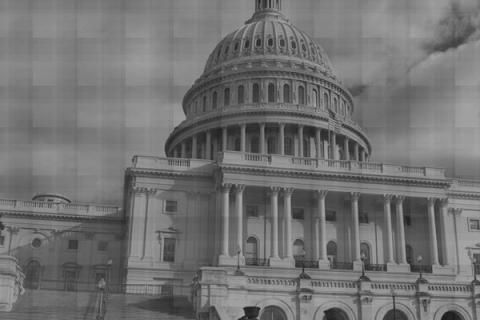While the effect of increasing concentrations of greenhouse gases was originally called ‘global warming', the name soon got changed to ‘climate change’ as it better explains the actual process. True, some places get warmer. But other areas get cooler. Or the amount of rainfall starts to fluctuate. If snowfall in the Sierras or Rockies drops, then the southwest and California will have droughts. It’s just that simple. Moreover, we just had the bizarre spectacle of Washington D.C. getting record amounts of snow while the Olympics in Vancouver had to truck in snow because they didn’t have enough.
Thomas Freidman at the New York Times suggests we now call the process “global weirding” as weather extremes of all kinds are coming. The Gulf Coast will probably get fewer hurricanes but they will be more powerful, that kind of thing.
As alert readers have no doubt noticed, it’s not just the weather that has been getting weird. The politics of climate change have been getting extreme and weird too. Skeptics have been known to make sweeping, unsupported claims while proponents in the scientific community have been evasive and misleading at times with their supposed facts.
Look, James Inhofe building an igloo in DC to tweak Al Gore’s nose because of the blizzards there is, well, just silly. But Phil Jones’ refusal to release crucial temperature records from the University of East Anglia has fueled quite justifiable suspicion that the data may be flawed. If he can even find the data, that is. Sorry, but this is inexcusable behavior for a supposed world-class scientist.
What was supposed to be a scientific debate has clearly become intensely political. The chief meteorologist at WDAF in Kansas City, Mike Thompson, recently said "It has become completely political — it’s not about science at all. If science were the objective, then we would be seeing an entirely different debate. But there are agendas at play, and it has undermined the credibility of climate science."
I believe strongly that 'global weirding' is quite real, and I also agree with Thompson. Watching both sides scream at each other, while refusing to accept the other might occasionally have a valid point, reminds of the alleged adults in the US Congress banging rattles on their high chairs when someone disagrees with them.
All this is may be beside the point, though. Climate change proponents want renewable energy and lots of it. Climate change opponents often want freedom from having to import oil and being dependent on other countries for fuel and energy. Those goals are not incompatible. In fact, they are quite similar. In both cases, renewable energy and clean tech are great ways to accomplish them.
Guess which state has both a self-contained energy grid and is also a leader in renewable and alternative energy? Texas. They create all their own power and don’t need any from other states. Plus, they are installing solar and wind energy on a massive basis. There is enough offshore wind in the Atlantic states to provide huge amount of clean, renewable energy by wind and wave. Europe and Britain already have ambitious plans to do this. All that is required for us is the will to do it. But first, we need to stop squabbling.
Texas could be a model for the rest of the country. States create their own power. Renewable energy means less importing of petroleum products. We become less dependent on the rest of the planet and vastly more self-reliant. Between wind, solar, wave, tidal, hydro, and geothermal, we can create most, if not all of our power. Nuclear power, controversial as it is, will probably be a part of this too. (Coal is on its way out.) Recent research indicates we could be on the verge of commercial-scale biofuel from renewable sources too.
So, instead of snarling at each other about climate change, how about we agree that alternative energy is something we all could benefit from? It’s clean, renewable, and lessens our dependence on other countries. Among other things, this would reduce the number of our geo-political entanglements and wars, saving lives and money, and increasing our own security as well. Plus we’d have clean, mostly carbon-free energy.
Everyone wins.
